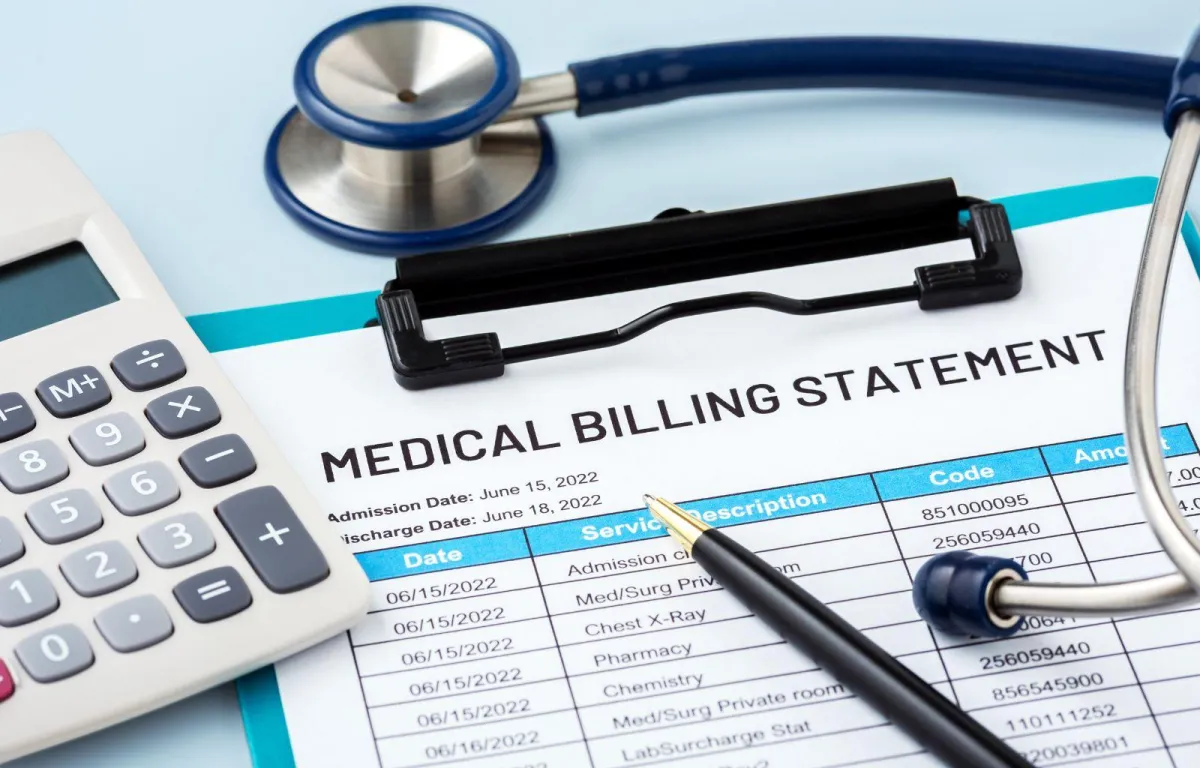Credit Card Debt Relief (General Programs)
Debt relief programs are designed to reduce balances or simplify repayment through structured solutions. Providers may combine accounts into one plan, lower interest, or negotiate with creditors to settle balances for less than owed. These programs often address high annual percentage rates (APRs) and help individuals who feel trapped by the minimum payment trap. When most of your monthly payment goes toward interest instead of principal, balances can rise despite years of steady payments. Relief programs create a structured plan to break that cycle.
Potential benefits include:
Pay less than the full amount you owe
Lower monthly payments that fit your budget
Shorter payoff timelines compared to minimum payments alone
Relief from aggressive collection activity and creditor harassment
Improved financial stability with structured repayment
You may qualify if you:
Have at least $7,500–$10,000 in unsecured debt, such as credit cards, personal loans, or medical bills
Struggle to keep up with minimum payments
Have already tried managing balances on your own but need additional help
Face rising rates that push balances higher despite consistent payments
Credit Card Debt Relief May Not Work If You Are:
Unwilling to adjust spending habits and make lifestyle changes to stay on track
Relying on credit cards to cover daily expenses while trying to pay them down
Not ready to commit to a structured repayment plan that requires consistency over time
Credit Card Debt Settlement
In a settlement program, creditors may agree to accept less than the total owed. You typically set aside funds each month into a dedicated account, which is later used to pay negotiated settlements. Settlement often works best when a borrower has already fallen behind and creditors realize collecting the full balance may not be possible. Demonstrating financial hardship, such as job loss, medical expenses, or reduced income, can increase the likelihood of a creditor agreeing to negotiate.
Benefits include:
Resolve debt for less than the balance owed
End collection calls once accounts are settled
Typically shorter payoff compared to minimum payments
Reduce stress by knowing there is an endpoint to overwhelming balances
Important to know:
Settlement may have short-term credit impacts since accounts are marked as “settled” rather than “paid in full”
Creditors are not required to agree to a settlement, though many do if hardship is demonstrated
You may face tax implications on forgiven debt, which is sometimes considered taxable income
Charge-off accounts and delinquent accounts may remain on your credit report for up to seven years, though their impact lessens over time
Credit Card Debt Consolidation Loan
A consolidation loan replaces multiple credit card balances with one new loan. The goal is to secure a lower interest rate and simplify payments. Consolidation is often tied to personal loans, home equity loans, or even balance transfer credit cards that offer promotional rates. By reducing interest charges, more of each payment goes toward principal, making progress faster.
Benefits include:
Combine multiple debts into one monthly payment
Lower interest can reduce total repayment costs
Easier to manage with a single due date
Helps avoid missed payments that damage credit history
You may qualify if you:
Have steady income and proof of ability to repay
Maintain a credit history strong enough to qualify for favorable terms
Are not already in severe default or collections
Borrowers should also consider the risks. Using a home equity loan may place property at risk if payments are missed. Likewise, failing to close credit card accounts after consolidating can lead to racking up new debt alongside the loan. Lenders often evaluate your credit utilization ratio, so lowering balances through consolidation may improve your FICO score if accounts are responsibly managed.
Credit Card Debt Management
A debt management plan (DMP) is set up through a nonprofit credit counseling agency. Creditors may agree to lower interest rates and waive late fees. You make one payment to the agency each month, which then distributes funds to your creditors. Debt management plans are often recommended for people with consistent income but overwhelming revolving debt and high APR balances. Unlike settlement, you repay the full balance, but often under far more favorable terms.
Benefits include:
Lower interest rates and waived fees
Pay balances in full over 3–5 years
Professional support from a counselor
Structured budgeting and financial education resources
Things to keep in mind:
You may need to stop using credit cards while enrolled
Requires consistent payments each month
Missing a payment could remove concessions from creditors
Credit counseling agencies are often accredited under organizations like the National Foundation for Credit Counseling (NFCC). These agencies follow consumer protection rules established under the Fair Credit Reporting Act (FCRA) and provide resources to help individuals understand credit reports from major agencies like Equifax, Experian, and TransUnion.
See Our Reviews

Reasons People Seek Credit Card Debt Relief
Carrying large amounts of credit card debt can have ripple effects across every area of life. People often seek relief because of:
Rising interest rates that make balances unmanageable
Harassing collection calls and letters in violation of the Fair Debt Collection Practices Act (FDCPA)
Desire for financial flexibility and peace of mind
Relief from the stress of carrying high revolving balances
Preparing for major life changes such as buying a home, starting a family, or retirement
Debt also has health implications. Studies link financial stress with increased anxiety, depression, and even physical symptoms like insomnia and high blood pressure. Finding a structured plan is not only about money, but also about improving overall well-being.
Understanding Credit Score Impacts of Debt Relief
| Debt Relief Option | Potential Short-Term Impact | Long-Term Impact | Key Considerations |
|---|---|---|---|
| Debt Settlement | May lower score as accounts are marked “settled” rather than “paid in full.” | Scores can improve once balances are reduced and collection activity ends. | Forgiven debt may be taxable income; charge-offs can remain on report for up to 7 years. |
| Debt Consolidation Loan | Possible temporary dip from a new credit inquiry. | Improved credit utilization ratio and easier repayment can strengthen scores over time. | Works best with steady income and closing old credit accounts to avoid new debt. |
| Debt Management Plan (DMP) | Neutral to mildly negative if cards are closed when entering the program. | Positive as balances are paid in full with consistent on-time payments. | Requires commitment to 3–5 years of structured payments through a credit counseling agency. |
Credit scores such as FICO and VantageScore are influenced by payment history, credit utilization, and account management. While short-term effects vary, the long-term benefit of resolving debt often outweighs temporary score reductions.
How DSN Debt Relief Connections Work
Debt Support National helps you explore available programs and connect with trusted providers. The process is simple:
1. Review Your Situation
Share your balances and financial goals. Whether you are struggling with late fees, facing collection activity, or simply trying to reduce the weight of compounding interest, understanding your unique circumstances is the first step.
2. Explore Options
DSN helps you understand which programs may be a fit. Some individuals benefit from settlement, while others succeed with consolidation or debt management. Our role is to provide clear explanations so you can make informed decisions.
3. Get Connected
We introduce you to providers who can enroll you in the right plan. These providers are experienced in negotiating with major creditors and offering structured repayment options.
4. Begin the Program
Your provider works with you to manage repayment until debts are resolved. Along the way, you gain resources for budgeting, financial literacy, and rebuilding credit.
DSN operates with full transparency and compliance with oversight by agencies such as the Federal Trade Commission (FTC) and the Consumer Financial Protection Bureau (CFPB). Our network emphasizes ethical standards, ensuring that clients receive guidance rooted in fairness and accountability.
Take Control of Credit Card Debt
Credit card balances do not have to control your future. With the right plan, you can move from financial uncertainty toward peace of mind. Debt Support National helps you understand available programs and connects you with providers who specialize in credit card relief. Start your free consultation today and explore the options for lasting relief.
Frequently Asked Questions About Credit Card Debt Relief
How much can I save with credit card debt settlement?
Debt settlement programs work by negotiating with your creditors so you pay less than the total balance owed. Depending on your financial hardship and creditor cooperation, many people resolve debts for a fraction of what they owe. While exact savings vary, clients often see balances reduced by 30–50 percent. Keep in mind that forgiven debt may be considered taxable income, and accounts may show as “settled” rather than “paid in full” on your credit report.
What is the difference between debt relief, debt consolidation, and debt management?
Debt Relief is a broad term for programs that reduce balances or restructure payments.
Debt Consolidation Loans combine multiple debts into one account, ideally with a lower interest rate.
Debt Management Plans (DMPs) are administered by nonprofit credit counseling agencies that work with creditors to reduce interest rates and fees while you repay the full balance over 3–5 years.
Each option affects your credit score differently, and the best choice depends on your income, debt amount, and financial goals.
Will credit card debt relief hurt my credit score?
The impact depends on the program you choose. Debt settlement may temporarily lower your score because accounts are marked as “settled.” Debt consolidation loans may cause a short-term dip due to a new inquiry, but often improve your credit utilization ratio. Debt management plans are generally neutral to positive because balances are repaid in full with consistent payments. In most cases, the long-term benefit of reducing or eliminating debt outweighs the short-term impact on your credit profile.
What happens if I keep making only minimum payments on my credit cards?
Paying only the minimum can trap you in debt for years, sometimes decades. For example, carrying a balance of $10,000 at an 18 percent APR could take over 20 years to pay off with minimum payments, costing thousands in interest. Debt relief programs, by contrast, are designed to resolve debt in 12–48 months, helping you save time and money while lowering stress.
How does Debt Support National help with credit card debt relief?
Debt Support National (DSN) connects you with trusted providers who specialize in settlement, consolidation, and management programs. The process begins with a review of your financial situation, followed by tailored options and a match to providers who can pursue reduced balances or establish structured repayment plans. DSN emphasizes transparency, ethical standards, and compliance with agencies such as the FTC and CFPB, ensuring you make informed choices with the support of trusted professionals.

Helping you achieve financial success with expert guidance and personalized strategies.
Opening hours
Mon - Fri : 9:00 AM - 7:00 PM
Saturday: 9:00 AM - 6:00 PM
Sunday: Closed
Disclaimer : Debt Support National is an independent website created to help users find a solution to their debt problems. Our service is free to use and you are under no obligation to accept any of the recommendations you receive. Calls may be recorded for training and quality purposes. Please check with your service provider for details. On completion of our form, we will introduce you to one of our authorised Debt Solutions provider. We use the contact details you have given us on the form to make this introduction. An adviser will contact you by telephone. During that call, the expert adviser will discuss your options in more detail to see if they can help.
Pulse Digital LLC does not directly administer debt management services. It is ultimately up to you to determine whether the company that we may introduce you to are appropriate for your situation.
Pulse Digital LLC is paid for providing marketing services to selected Debt Management companies who are legally appointed to manage debt adjustment services. They have no affiliation with your Creditors. They will offer free initial consultations with no further obligation.
We use cookies to give you the best experience. By using our website, you agree to our use of cookies in accordance with our cookie policy. Names and pictures associated with client testimonials are not real in order to protect the privacy of all clients.
www.deptsupportnational.com is owned by Pulse Digital LLC. Registered Address: 447 Broadway, 2nd Floor, 754, New York, NY 10013
© Debt Support National. 2026. All Rights Reserved.







